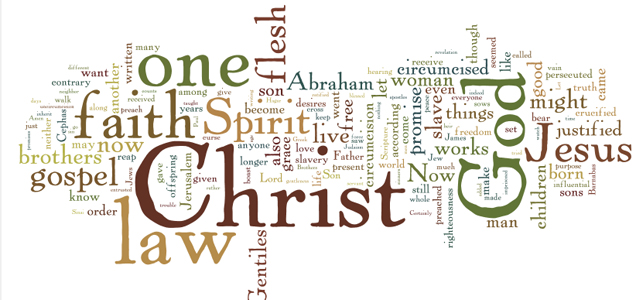In our baptismal confession, we proclaim the church is “catholic.” The word simply means “universal”. It means there is only one church because there is only one Lord. Though there have been many Christian communities spread out across different times, places, and cultures, they are all mysteriously united in one Spirit. Each local gathering of believers is an expression of this mysterious catholicity.
The church is catholic because it is a microcosm of a universal human society. In the waters of baptism, all the old social divisions are made irrelevant. The church includes every kind of person: rich and poor, male and female, Jew and Gentile, slave and free (Gal 3:26-28). Whatever defined a person before is relativised by the new defining mark of membership in the body of Christ. There is no social barrier that could exclude a person from inclusion in this body. The boundaries of the church are as wide as the human race.
Further, the church is catholic because it preaches a catholic message. The gospel of Jesus Christ is not addressed to one particular social class or ethnic group. It is addressed to every imaginable human being. There is nobody in the world for whom the message of Christ could be irrelevant. One of the most unusual aspects of the Christian faith is its translatability. The other great monotheistic traditions – Judaism and Islam – place a high value on preserving God’s message in its original language, whether Hebrew or Arabic. But from the start, the Christian movement was marked by translation. Jesus himself spoke Aramaic. But the four Gospels all translated his teaching into vernacular Greek, so the message would be available to as many as possible. Within a remarkably short time the Christian movement had taken root in several different cultures, each one reading and proclaiming the gospel message in its own tongue. The message of Christ is a catholic message.
The 13th-century teacher Thomas Aquinas noted that the message of the gospel is also “catholic” in how it responds to the human plight. All the deepest human needs are addressed in the gospel. The message of Christ doesn’t just speak to a special part of life – the moral or spiritual part, for example. It speaks to the whole person, body and soul, individual and social. It is a catholic message because it embraces the whole person in a word of grace and truth. The gospel is as broad and deep as human life itself. It is a catholic word because it speaks to the whole human condition.
But there is an even more radical dimension of Christian catholicity. The greatest barrier that divides human beings from one another is not culture, language or class. The greatest barrier is death. Death is the ultimate division. It splits humanity into two classes: the living and the dead. All other social divisions seem petty compared to this. All human beings are left powerless before this fundamental boundary. But the risen crucified one has kicked down this barrier. Through the resurrection, Christ has restored communion between the living and the dead. He has formed one human family that stretches out not only across space, but time as well. The body of Christ is the most inclusive community imaginable because it includes not only those who are now living, but all believers who have ever lived from every tribe and tongue. Even death is no barrier for the body of Christ.
The message of the gospel is not directed primarily to individuals but to a community. God’s plan of salvation all along has been to create a single human society as the bearer of the divine image. The church isn’t just the way we respond to salvation; the church is salvation. The church is what God is doing in the world. It is a microcosmic representation of what God intends for the whole human race.
That is why every division between believers is a denial of the gospel. Even if the unity of the church is something we never fully experience in this life, we must always be striving towards it. A Christian community is catholic to the extent that it is always uniting. Wherever we identify a line of division within the human family, Christ calls us to step across in the power of the Spirit. For “there is one body and one Spirit, just as you were called to the one hope of your calling, one Lord, one faith, one baptism, one God and Father of all” (Eph 4:4-6).
Ben Myers is Lecturer in Systematic Theology at United Theological College













